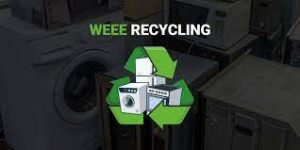What are the benefits of separating WEEE items before recycling?
benefits of separating WEEE items before recycling
Waste Electrical and Electronic Equipment (WEEE) recycling is essential for mitigating environmental impact, conserving resources, and promoting a circular economy. However, to maximize the effectiveness of recycling processes, separating WEEE items before recycling is crucial. This article explores the numerous benefits of pre-separation in WEEE recycling and highlights how this practice contributes to sustainability and resource efficiency.
One of the primary benefits of separating WEEE items before recycling is the enhanced recovery of valuable resources. Electronic devices contain various materials, including metals, plastics, and rare earth elements, all of which can be reclaimed and reused in manufacturing processes. By separating WEEE items into distinct categories, such as circuit boards, cables, and casings, recyclers can optimize resource recovery by efficiently extracting and processing each material type. This maximizes the utilization of valuable resources and reduces the reliance on virgin materials, thereby conserving natural resources and minimizing environmental impact.
Separating WEEE items before recycle weee near me streamlines the recycling process and improves operational efficiency. By categorizing and segregating electronic waste based on material composition, recyclers can tailor their recycling methods and equipment to each material type, optimizing processing efficiency and reducing processing time. This minimizes the risk of cross-contamination and simplifies downstream processing, ultimately lowering overall operational costs and improving the viability of WEEE recycling as a sustainable business model.

What are the benefits of separating WEEE items before recycling?
Many WEEE items contain hazardous substances, such as lead, mercury, and brominated flame retardants, which pose environmental and health risks if not managed properly. Pre-separation allows recyclers to identify and isolate hazardous components, ensuring safe handling and disposal in compliance with regulatory requirements. By segregating hazardous materials from non-hazardous components, recyclers can implement appropriate containment and treatment measures, mitigating the risk of environmental contamination and protecting worker safety throughout the recycling process.
Separating WEEE items before recycling improves the quality of recycled materials, enhancing their market value and usability in manufacturing applications. By segregating materials based on purity and composition, recyclers can produce higher-grade recycled materials with fewer impurities and contaminants. This increases the attractiveness of recycled materials to manufacturers seeking sustainable sourcing options and promotes the incorporation of recycled content into new products, closing the loop on the product lifecycle and promoting a circular economy.
The practice of separating WEEE items before recycling stimulates innovation and drives technological advancements in recycling processes. As recyclers strive to optimize resource recovery and improve operational efficiency, they invest in research and development to develop innovative sorting, separation, and processing technologies. These advancements not only enhance the effectiveness of WEEE recycling but also have broader applications across other waste streams, contributing to the advancement of sustainable waste management practices on a global scale.
In conclusion, separating WEEE items before recycling offers a multitude of benefits that contribute to environmental sustainability, resource conservation, and economic efficiency. By enhancing resource recovery, streamlining recycling processes, managing hazardous materials, improving the quality of recycled materials, and promoting innovation, pre-separation plays a critical role in advancing the circular economy and mitigating the environmental impact of electronic waste. As the importance of WEEE recycling continues to grow, prioritizing pre-separation practices is essential for maximizing the environmental and economic benefits of electronic waste recycling initiatives.